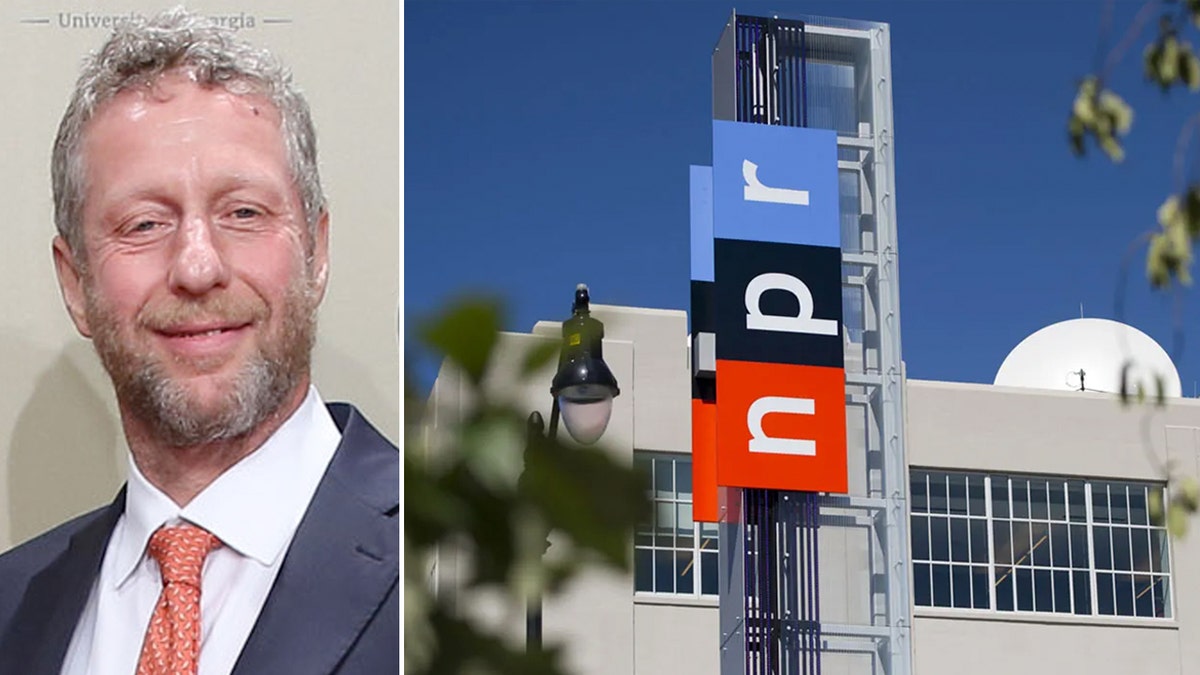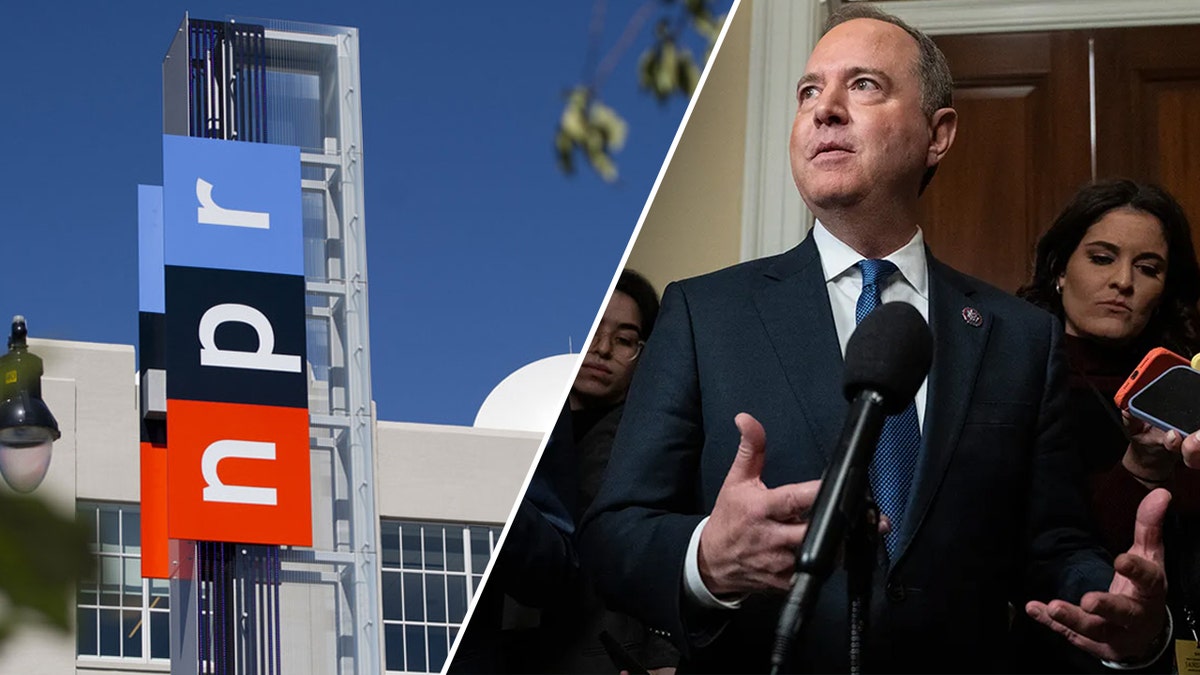
5 things veteran NPR editor exposed in stunning criticism of own employer’s liberal bias
By Brian Flood, David Rutz, Joseph Wulfsohn
Published April 13, 2024
Veteran NPR editor Uri Berliner detailed his employer’s "absence of viewpoint diversity" this week in a stunning piece about liberal groupthink invading the newsroom that rocked the media industry.
Berliner’s Free Press bombshell offered an inside look at NPR’s drift from only being "a bit to the left" in 2011 to its current form, where he said an "open-minded spirit no longer exists."
Here are five of Berliner’s most notable claims:
NPR EDITOR REBUKES OUTLET'S OWN COVERAGE OF HUNTER BIDEN LAPTOP, COVID LAB LEAK AND RUSSIAGATE

Uri Berliner, the senior business editor and a 25-year NPR veteran, accused his employer of liberal groupthink. (Getty Images)
NPR relied on 'ever-present muse' Adam Schiff during Russiagate to 'damage' Trump
NPR interviewed Rep. Adam Schiff, D-Calif., for its Russiagate coverage dozens of times between 2016 and 2019, so much so that he was characterized as the outlet's "ever-present muse" by Berliner.
Berliner said the 2016 election of Donald Trump quickly encouraged NPR journalists to find ways to "damage or topple" his presidency, saying that the narrative that the Trump campaign colluded with Russia to win the White House "became the catnip that drove reporting" and that "we hitched our wagon to Trump’s most visible antagonist, Representative Adam Schiff."
"Schiff, who was the top Democrat on the House Intelligence Committee, became NPR’s guiding hand, its ever-present muse," Berliner wrote. "By my count, NPR hosts interviewed Schiff 25 times about Trump and Russia. During many of those conversations, Schiff alluded to purported evidence of collusion. The Schiff talking points became the drumbeat of NPR news reports."
Berliner actually undercounted the number of interviews NPR did with Schiff specifically about Russia between 2016 and 2019. A Fox News Digital review found at least 32 interviews Schiff gave to the taxpayer-backed outlet between Dec. 11, 2016, and July 24, 2019, all involving some aspect of Russia's interference in the 2016 election and the sprawling investigation into whether the Trump campaign illicitly coordinated with it. Special Counsel Robert Mueller later found there was no evidence behind Schiff's collusion claims.

NPR interviewed Rep. Adam Schiff, D-Calif., for its Russiagate coverage dozens of times between 2016 and 2019, so much so that he was characterized as the outlet's "ever-present muse" by Uri Berliner. (Getty Images)
'Troubling' avoidance of growing antisemitism following Oct. 7
Berliner called out his employer's "troubling" blackout in coverage of the growing antisemitism that took place in the U.S. and around the world following the Oct. 7 terrorist attack against Israel. He swiped NPR's framing of the Israel-Hamas war through an "'intersectional' lens" that ultimately slanted its reporting.
"We have approached the Israel-Hamas war and its spillover onto streets and campuses through the ‘intersectional’ lens that has jumped from the faculty lounge to newsrooms. Oppressor versus oppressed," Berliner wrote Tuesday. "That’s meant highlighting the suffering of Palestinians at almost every turn while downplaying the atrocities of October 7, overlooking how Hamas intentionally puts Palestinian civilians in peril, and giving little weight to the explosion of antisemitic hate around the world."
Berliner went into further detail about NPR's lack of attention to antisemitic incidents on the "Honestly" podcast.
"To me, this is probably the most troubling thing because you know, in the weeks immediately following October 7, we saw Jewish students being locked into a library where pro-Palestinian protesters were banging on the door. We saw ‘Glory be to the martyrs’ projected on a school building. We saw posters of kidnapped children and elders being ripped down, and we really didn't cover this sort of stunning outburst of antisemitism for a number of weeks," Berliner told host Bari Weiss.
NPR EDITOR KNOCKS OUTLET'S 'TROUBLING' AVOIDANCE OF GROWING ANTISEMITISM FOLLOWING OCT. 7
Registered Democrats outnumbered Republicans 87 to zero in newsroom
Berliner says voter registration records in 2021 showed an astonishing disparity between Democrats and Republicans in the NPR newsroom as recently: 87 to zero.
The veteran editor said the lack of "viewpoint diversity" had spilled over into how NPR covered such topics as the Israel-Gaza war and avoided terms like "biological sex" in its reporting. He said he looked up voter registrations for the NPR newsroom in 2021 and found that in the city's headquarters of Washington, D.C., there were 87 registered Democrats in NPR editorial positions and "zero Republicans."
"So on May 3, 2021, I presented the findings at an all-hands editorial staff meeting. When I suggested we had a diversity problem with a score of 87 Democrats and zero Republicans, the response wasn’t hostile. It was worse," he wrote in The Free Press. "It was met with profound indifference."
NPR turned a ‘blind eye’ to Hunter Biden laptop, reporter didn’t want to help Trump
When the New York Post first reported on Hunter Biden's laptop in 2020, NPR infamously issued a statement as to why it wasn't covering the story: "We don’t want to waste our time on stories that are not really stories, and we don’t want to waste the listeners’ and readers’ time on stories that are just pure distractions."
Berliner disagreed, writing that it was certainly newsworthy.
"The timeless journalistic instinct of following a hot story lead was being squelched. During a meeting with colleagues, I listened as one of NPR’s best and most fair-minded journalists said it was good we weren’t following the laptop story because it could help Trump," Berliner wrote.
The laptop was eventually confirmed to be authentic.
NPR EDITOR'S BOMBSHELL ESSAY CAUSING 'TURMOIL' AT LIBERAL OUTLET: REPORT
NPR dismissed COVID lab leak theory
Berliner pointed to NPR's coverage of the COVID-19 lab leak theory, which he said the outlet was supposed to ignore. Similar to the Biden laptop story, the notion that the virus may have leaked from a Wuhan virology lab in China was dismissed as a right-wing conspiracy theory before ultimately being accepted as at least a plausible theory in mainstream media.
"Over the course of the pandemic, a number of investigative journalists made compelling, if not conclusive, cases for the lab leak. But at NPR, we weren’t about to swivel or even tiptoe away from the insistence with which we backed the natural origin story," he wrote.
Berliner wrote that one of his colleagues on the science team was asked why they were so dismissive of the theory and that his response was "odd."
"The colleague compared it to the Bush administration’s unfounded argument that Iraq possessed weapons of mass destruction, apparently meaning we won’t get fooled again. But these two events were not even remotely related. Again, politics were blotting out the curiosity and independence that ought to have been driving our work," he wrote.
When asked for comment, an NPR spokesperson directed Fox News Digital to a memo to staff by editor-in-chief Edith Chapin, where she wrote she and her team "strongly disagree" with Berliner's assessment of the quality of NPR's journalism and integrity.
CLICK HERE TO GET THE FOX NEWS APP
Fox News Digital’s Hanna Panreck contributed to this report.
https://www.foxnews.com/media/5-things-veteran-npr-editor-exposed-stunning-criticism-own-employers-liberal-bias

